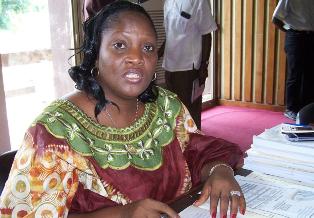Editorial: Liberia and the Health Challenges
Statistics from the health sector of Liberia presents a grim picture that indicates that the country’s doctor-to-patients ratio is 1:25,000, meaning that hundreds of thousands of Liberians, particularly those in the vulnerable population don’t have access to basic health services.
Worst still, the only medical college here has an unimpressive enrollment of 101 students pursing degrees in medicines, while 78 are in the School of Pharmacy. That’s the current status of the A.M. Dogliotti College of Medicines at the University of Liberia.
Speaking at the dedicatory ceremony of newly renovated and equipped laboratory buildings for the medical college last Thursday in Monrovia, President Ellen Johnson Sirleaf described the doctor-to-patients ratio as still too high by international and even African standards, and stressed the need to multiply the number of students in both schools to meet the growing health needs of the country’s young population.
This is a wakeup call to policymakers, particularly those in the health and education sectors to collaborate much closely now than ever before to attracting qualified instructors (medical doctors) and students completing undergraduate studies in the Sciences, specifically Biology and Chemistry to the medical college as a matter of urgency.
It is often said that ‘health is wealth’ hence, the need to prioritize the health needs of our youthful population cannot be overstated. If every Liberian is to benefit from the prosperity envisaged by the President recently in her annual address to the 53rd Legislature, health should be given the utmost priority it deserves.
We hail the government so far for efforts made in the past six years to provide health centers and hospitals across the country, but the challenge of deploying qualified staff to man those facilities still stare us in the face.
The Vice President for Health Services, Dr. V.K. Golakai, who is also Dean of the College of Medicine and Acting Dean of the School of Pharmacy, respectively termed the opening of the laboratories a “watershed” for the Medical School and School of Pharmacy, while the Health Systems Reconstruction Program Coordinator at the Ministry of Health and Social Welfare Mrs. Arabella Greaves, said the project was both challenging and frustrating, but rewarding, and added that one of her fondest memories during a visit to a laboratory class at the University was when she saw students clamoring around each other to see a chemical reaction, something they had not seen throughout their studies.
Indeed, developing the minds of our youth to enable them become wholesome functioning men and women for the future is the foundation to achieving sustainable prosperity. The government’s current crusade for youth empowerment would be meaningless unless great attention is directed to investing in education.
[bsa_pro_ad_space id=1]
Prosperity will remain an illusion for many ordinary Liberians if they cannot access basic health services or acquire the quality of education necessary to transform the lives from the shackles of degradation.
As President Sirleaf has promised students at the medical college that she will work with the Minister of Health and Social Welfare Dr. Walter Gwenigale and the President of the University of Liberia, Dr. Emmett Dennis as well as the Chairman of the Senate Committee on Health and Social Welfare to improve learning conditions on campus, we pray that such collaborative efforts would proceed expeditiously to achieve the desired results for the common good of the nation and its citizenry.




















